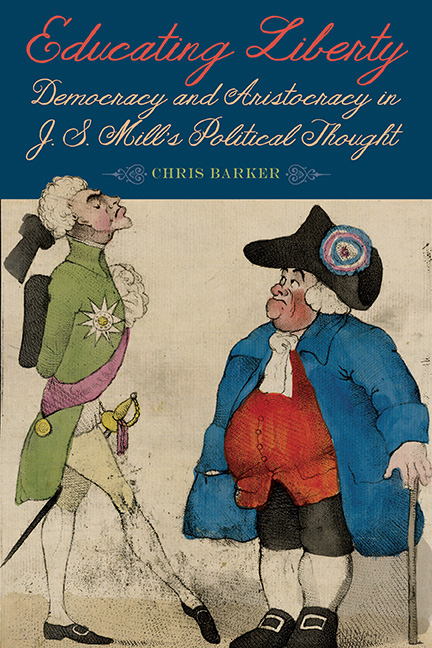Conclusion and Applications
Published online by Cambridge University Press: 24 July 2019
Summary
This book has made reference to Mill's major works on logic, political economy, gender, political representation, scientific progress, and religion in order to show the consistent care with which he examines the conditions and practice of educated liberty and mental independence. By this point, I hope the reader will have been convinced that Mill's theory of liberalism depends on education. Without education, the mind is merely left to unanswerable questions, such as the exact justice of a taxation policy, or which life to choose, or whether to believe that a godlike voice is in fact the voice of God. Mill's theory of education and his consistency in elaborating that theory as applied ethology and dialectic answers these otherwise impossible questions of application.
Crucial in this sort of theorizing is the character of the people who will carry out (or benefit from) liberal policies. Mill's philosophy of life is democratic, inclusive, meritocratic, individualist, and moderate. The aristocracies of sex, color, and race have no further justification in a liberal democracy. Scientists are crucial figures in the advancement of learning, but their expertise or the pastoral power of the clergy do not cancel the place of participatory politics and small-scale association.
These observations alone might not warrant yet another study of Mill's thought, although their proper interpretation is a deep and important question. The recent revival of wealth republicanism, the growing literature on public science, and the established literature on deliberative democracy attest to the urgency of these latter issues of democratic inclusion, and Mill, I have tried to show, is very much worth rereading as a commentator on democratization.
What ultimately justifies continued and renewed attention to Mill's liberalism is his way of interrelating and connecting the foregoing issues of gender, work, scientific expertise, political representation, and religion as if the criteria by which to judge them are education and mental independence. Mill's majority democracy eschews the allure of control in favor of creating the conditions required to enjoy mental independence. Although it is tempting to say that thinking power alone matters, Mill clearly cares about material conditions—birth, family, marriage, economic activity—and recognizes limits on the power of education to transform human beings. Restraining and retraining, not complete transformation— that is education.
- Type
- Chapter
- Information
- Educating LibertyDemocracy and Aristocracy in J. S. Mill's Political Thought, pp. 193 - 202Publisher: Boydell & BrewerPrint publication year: 2018



